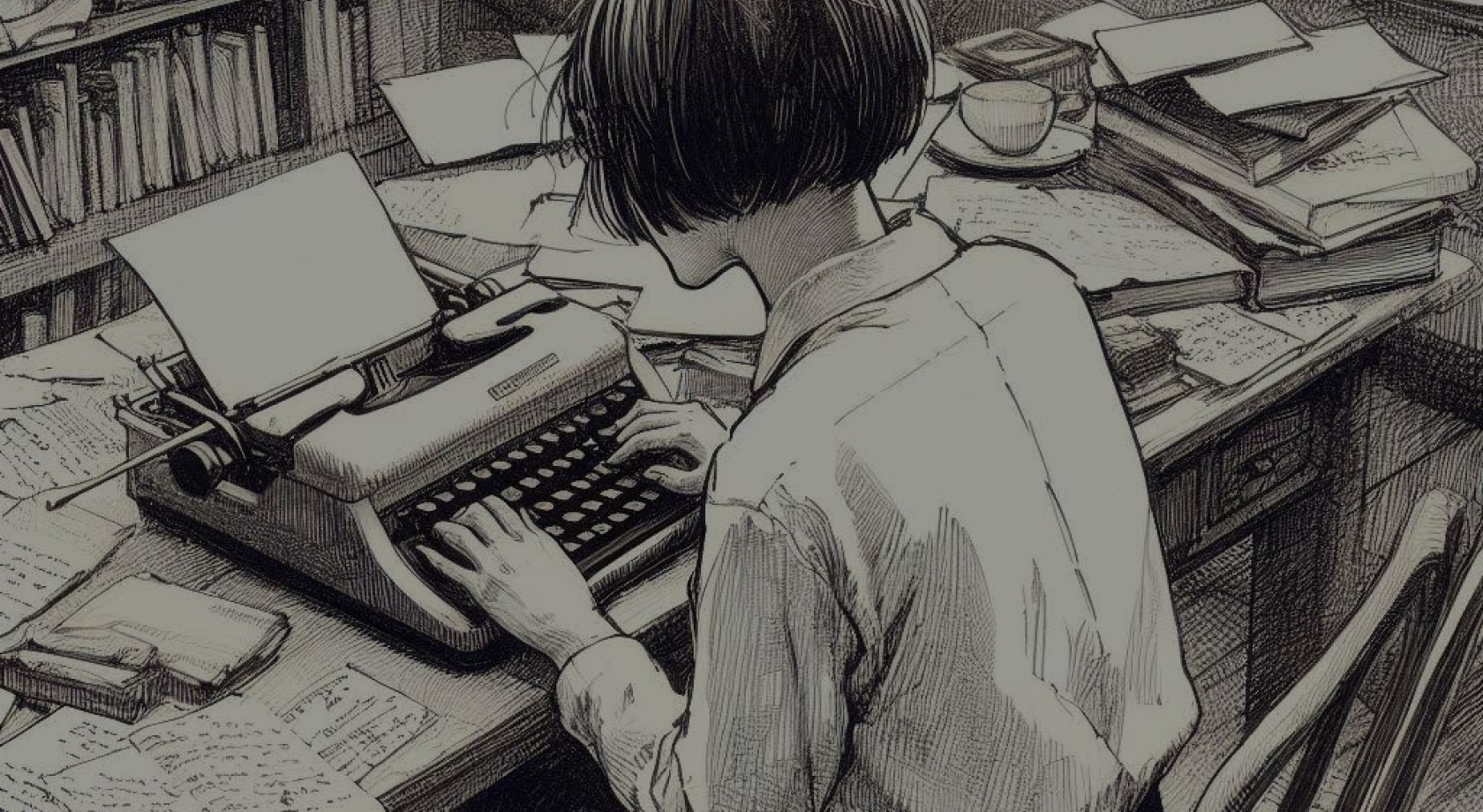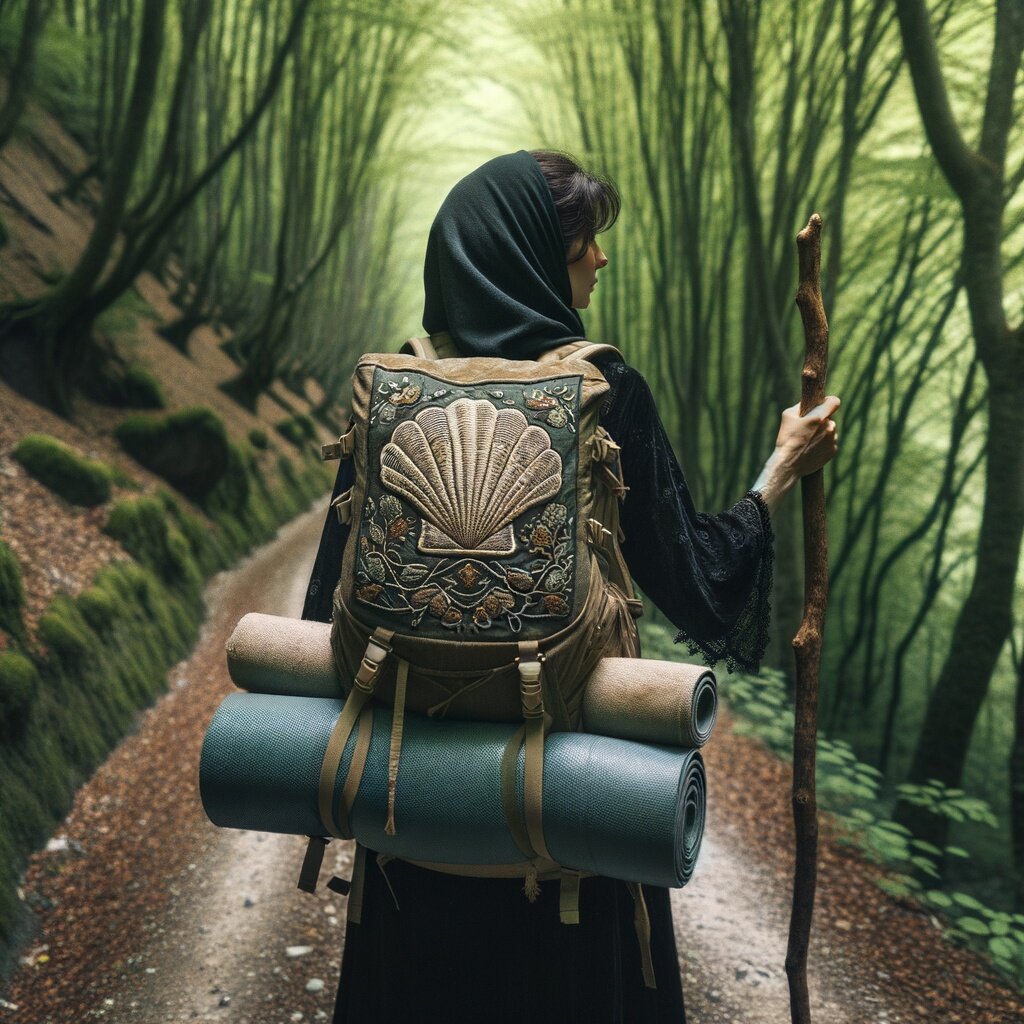The adventures and misadventures of the Jacobean Route (chapter 1)
What made me want to go on pilgrimage? I don't really remember why. I just remember that I felt I was at a crossroads in life. I sensed that the path my life had been following until then had come to an end and it was time to take a new direction. I think I decided to follow this intuition literally the day I met a friend of mine who was returning from Spain, where she had been on pilgrimage for a month. She radiated energy and told us a thousand stories about what seemed like an unconventional vacation. Six months later, I was following the same path she had taken.
In the meantime, I read all the literature there was on the Way of Saint James, attended lectures by pilgrims at the Club of Spain in Rio de Janeiro and prepared myself physically. I was burning with anticipation for the day when the adventure would finally begin, without knowing that the adventure had already begun on the very day I had decided to walk the route. My first step was to buy a pair of hiking boots and soften them up. Every Sunday, I set off from Rua das Laranjeiras towards Christ the Redeemer, with new boots on my feet and a backpack full of lead weights, the kind used as ballast in scuba diving belts. My work colleagues thought this was crazy fitness, but I knew I'd have to carry a heavy backpack, as my pile of 'indispensable' things for the hike only grew.
At the end of August, I set off on my own. On the first day of the pilgrimage, I was supposed to cross the Pyrenees, but as I didn't think I'd have the physical stamina for it, I started one stop ahead. From the airport, I took a taxi straight to Roncesvalles, in Spain. I arrived at the Royal Collegiate Monastery just in time for the pilgrims' blessing. After Mass, I went to get my Pilgrims' Passport, a document that is stamped at each town along the route where you arrive, and to take a shower to relax from the Rio-Madrid flight. When I finally crossed the threshold of a pilgrims' dormitory dating back to 1127, it was already dawn, the lights were all off and the other pilgrims were sleeping the sleep of the just. Guided by the faint moonlight coming through the open window, I found an unoccupied patch of ground and, right there, I opened my sleeping bag and collapsed from exhaustion.
The next day, at 7 a.m., I put my twelve-kilogram backpack on my back and started following the yellow arrows in search of a soul washed clean by sacrifice. In those last days of European summer, the heat was infernal. Every time I came across a medieval stone fountain in the middle of the road, the kind where horses drink water, I would get wet from the waist up under the curious gaze of passers-by. In the evening, after walking between 23 and 27 km a day, I had little energy left but to take a shower and eat the pilgrim menu with a glass of wine. Then, sitting on my sleeping bag, I would curiously follow the work of two or three volunteers who would go from bed to bed in the dormitory, asking if anyone needed their feet bandaged. The blisters were then pierced with fine needles to drain the fluid and disinfected with polvedine.
By the fourth day of the walk, I had discovered that it would not be possible to carry 12 kilos on my back. It had become torture. After carefully analyzing everything in my backpack, I managed to separate out four kilos of clothing and less necessary items. I then went to the nearest post office and sent a package with these items to a post office in Santiago de Compostela in my name.
That same evening, my joy at reducing the weight of my backpack was short-lived. One of the pilgrims, a German doctor twenty years older than me, insisted on walking with me the next day. After struggling with insomnia for some time, I decided that the next day I would set off alone, before the others woke up. At 5:45 a.m., with the sky still dark, I set off sneakily and happily. Soon, however, I discovered that, in my desperation to escape being forced to walk with someone so strange, I had got myself into a mess: in that darkness, I could hardly see where I was stepping. What if something dangerous happened to me?
It was late morning when I entered a village where stone stelae with Templar symbols abounded. My eyes wandered between these symbols and a stable, which had once served pilgrims traveling on horseback, when I noticed the German doctor entering the street where I was, a few meters ahead of me. I was saved from this embarrassing encounter by a street vendor selling fresh cherries packed in adorable straw baskets; there are few things better than eating the juicy pulp of the cherries and spitting out the stone on the road, imagining that in five years' time it will all be shaded by cherry blossom trees.
That same day, the wonderful silicone insole that I had paid a fortune for, and which had been saving my feet from the abuse of the road, finally cracked, and with it came the blisters. Several levels of blisters, one on top of the other, on the heel of my foot. Something I've never seen before! That night I experienced being looked after by volunteers for the first time. Accepting kindness from strangers is also a learning experience, and I wasn't used to it. I confess that the first thing I thought was "I wonder what he wants in return?". How ugly, isn't it?
There's nothing better than physical suffering followed by expressions of solidarity to make our minds forget their existential conflicts. So, from this stage of the journey, I went on calmly, without any thoughts in my head. The only things that bothered me were the threads that ran through the blisters on my feet to help them drain faster.
(end of first chapter)
Voltar

